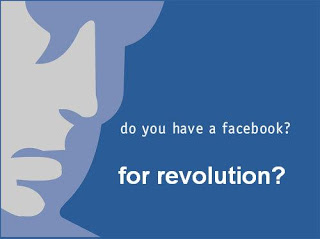Gary North
Lew Rockwell
The dictator of Tunisia was overthrown in less than one month after being in power for 23 years. There is no question about how opponents of his regime were able to topple it. Two words describe it: Facebook, Twitter. These two social networking sites enabled protesters to take to the streets, organize the opposition, recruit new protesters, and overcome the police force and the military.
There is no question that if the government had chosen to use machine guns to cut down the protesters, it probably would have succeeded in suppressing the revolt. If it had combined machine guns with switching off the Internet, it would have been able to cut the protest down, both literally and digitally. But to do that, the regime would have had to act extremely fast, and it would have risked coming under international condemnation. It would also have created a permanent opposition, ready to revolt again.
The opposition forces are now connected, yet not organized. This has never happened before in recorded history. The masses can communicate with like-minded people for the price of a computer and an Internet connection.
In the good old days of the Soviet Union in the 1960s, the leaders would have applied that degree of force without a moment’s hesitation. But this is not the era of the Soviet Union. We are living in a digital age, and almost nothing can be concealed from the public for very long. If a tyrant is weak, this will become common knowledge. There are few Goliaths and a lot of Davids online.
It is the power of the communications networks, when coupled with a willingness on the part of protesters to gather in the streets, that spells a period of crisis for every autocratic regime on earth. The autocrats have seen in January 2011 that it is difficult to put a lid on any unorganized protests. The organizing did not come from some little group that can be infiltrated or arrested. This was as close to a spontaneous protest as anything we have seen in modern times.
The ability of the social networks to organize a protest almost overnight, because people of similar beliefs and commitments are in close communication with others, has completely changed the nature of political resistance and revolution. This system of revolution toppled a middle eastern dictatorship in less than a month. It threatens to topple two more before the end of February: Yemen and Egypt. We have entered into a new period political resistance.
RELATED ARTICLE:
10 Re-Solutions for Non-violent Rebellion


Be the first to comment on "Facebook, Twitter, and the Arab Revolutions"